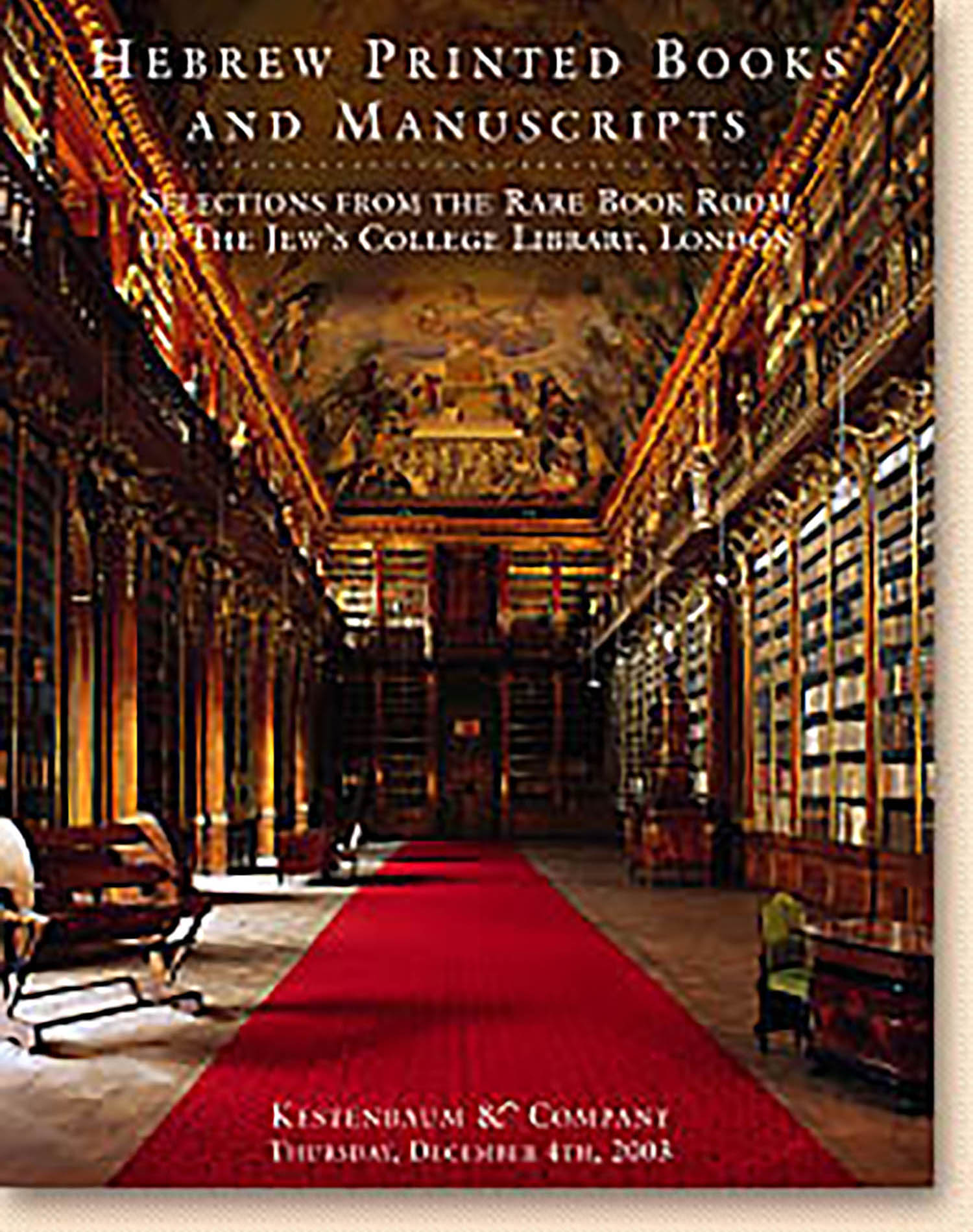Aloys Wienner. Or Nogah/Splendor Lucis/Glanz des Lichts

AUCTION 21 |
Thursday, December 04th,
2003 at 1:00
Kestenbaum & Company Holds Inaugural Auction of Hebrew Printed Books & Manuscripts at Their New Galleries
Lot 131
(KABBALAH)
Aloys Wienner. Or Nogah/Splendor Lucis/Glanz des Lichts
Vienna: Johann Joseph Pentz 1747
Est: $500 - $700
PRICE REALIZED $600
An alchemical text. Aron Freimann had before him a later edition of the book (Frankfurt and Leipzig, 1785). This work, by a Christian kabbalist, focuses on the mythic “philosopher’s stone,” which of course, was the dream of every alchemist, but which psychologists, most notably Jung, have interpreted as a collective archetype. The same goes for the “four elements.” The book deals extensively with the supposed transmutation of metals. Inevitably, the goal is to transmute base metals into gold. Numerous verses in the Bible are subjected to this reading. We are led to believe that Abraham (imputed author of Sepher Yezirah), Isaac, Jacob, Judah, Moses, Bezalel, David, Solomon, Isaiah, Ezra, and Job are all links in a secret lineage of alchemists.
The late Raphael Patai published a work, Jewish Alchemists, which contains much manuscript material in this little-known, and what appears to us, outlandish field. Believe it or not, this branch of applied kabbalah continued into the twentieth century. Makhlouf Amsallem of Fez, Morocco, who at great expense, imported from France the glass retorts and other paraphernalia necessary to set up a “modern” laboratory, was the last of the Jewish alchemists. See Raphael Patai, Jewish Alchemists (Princeton, 1994); Makhlouf Amsallam, Tapuchei Zahav be-Maskiyot Kesef (Jerusalem, 1927).
